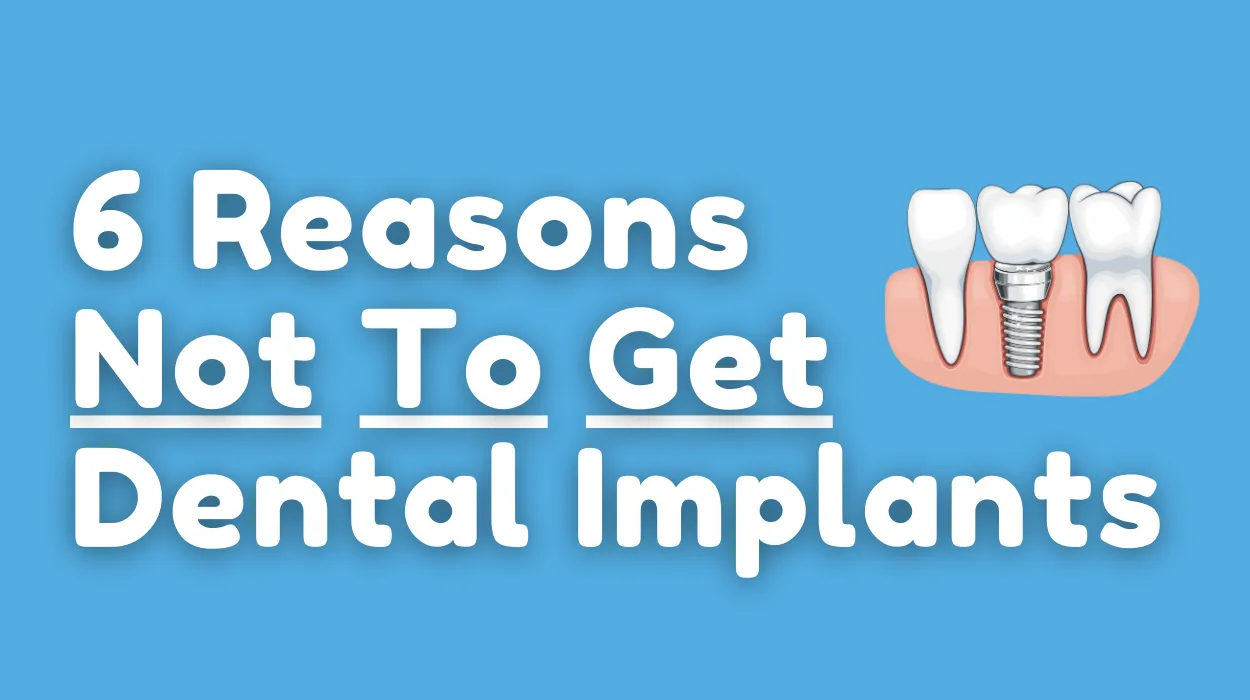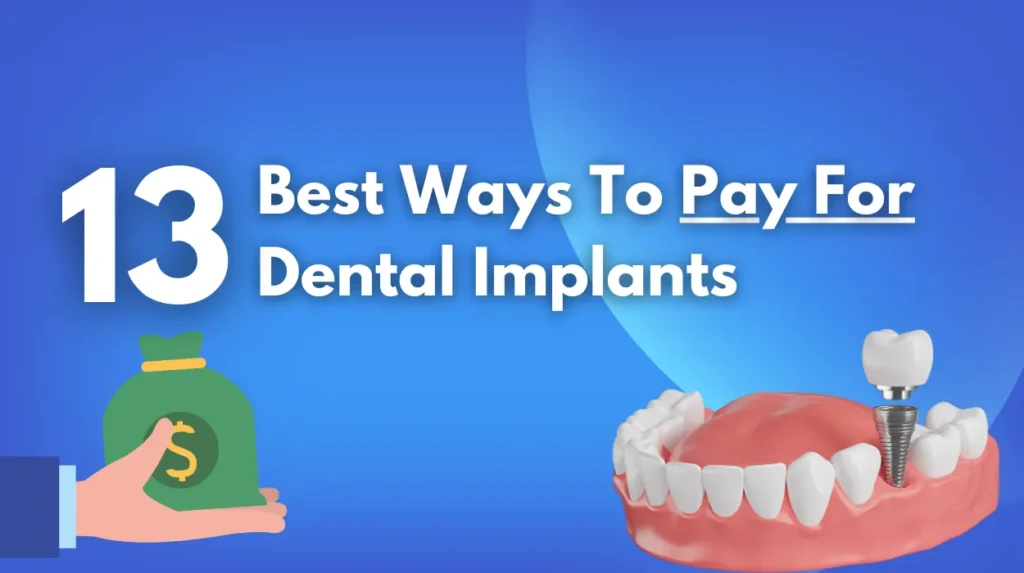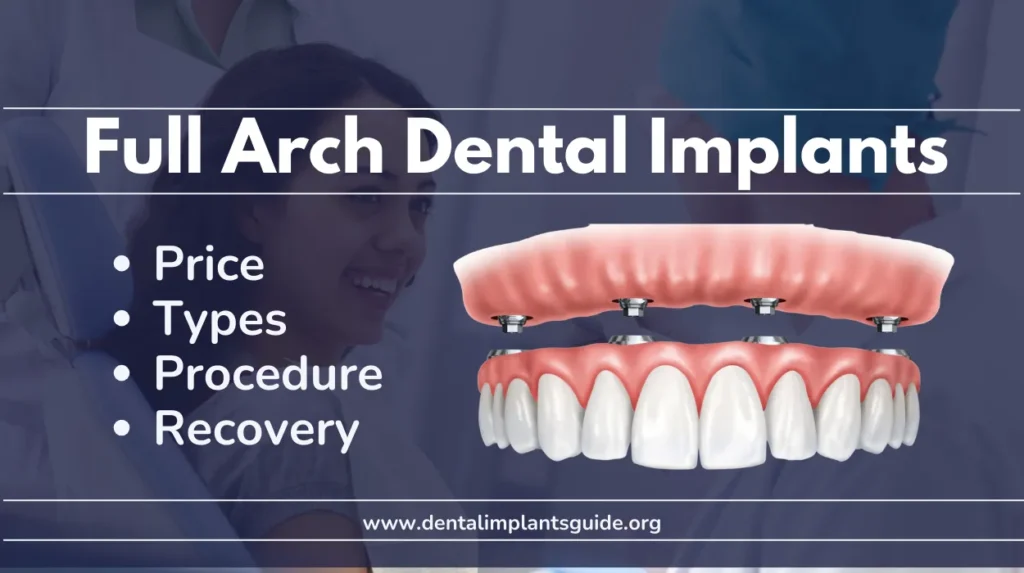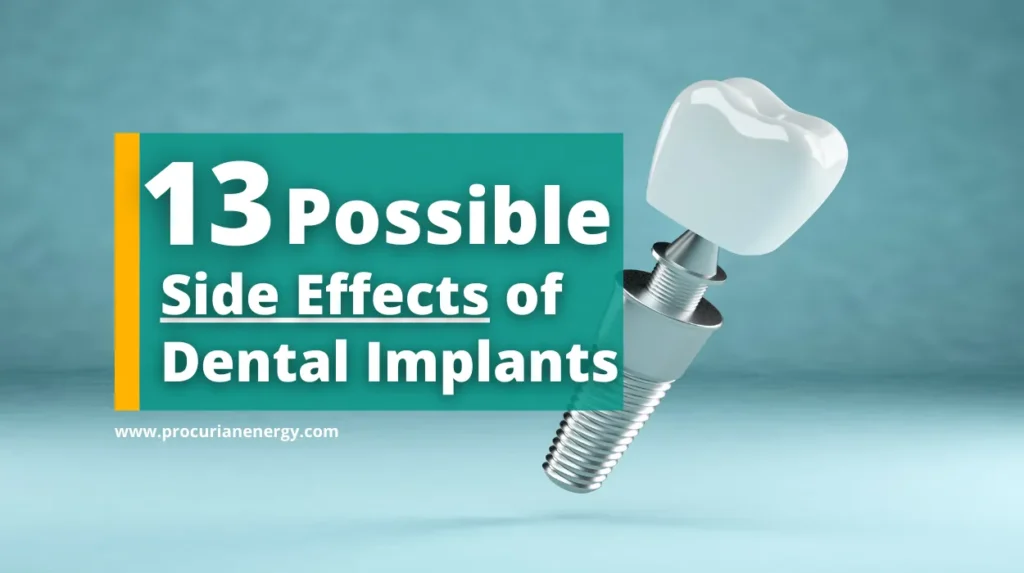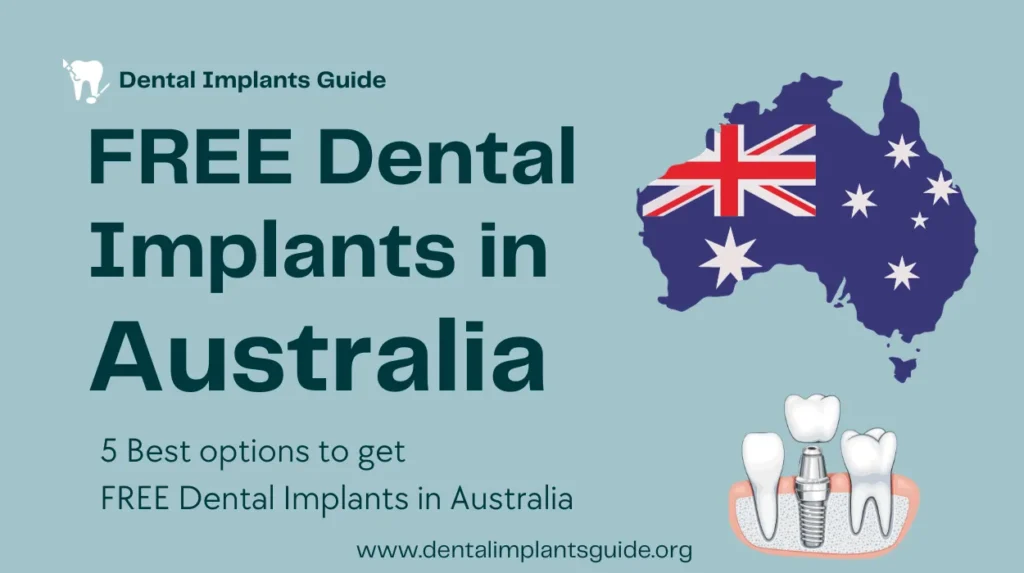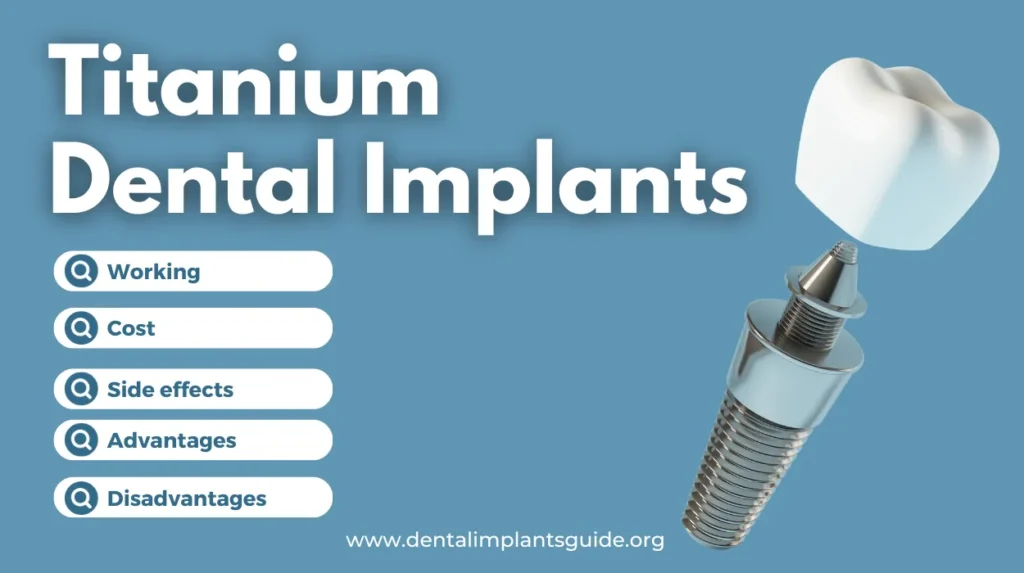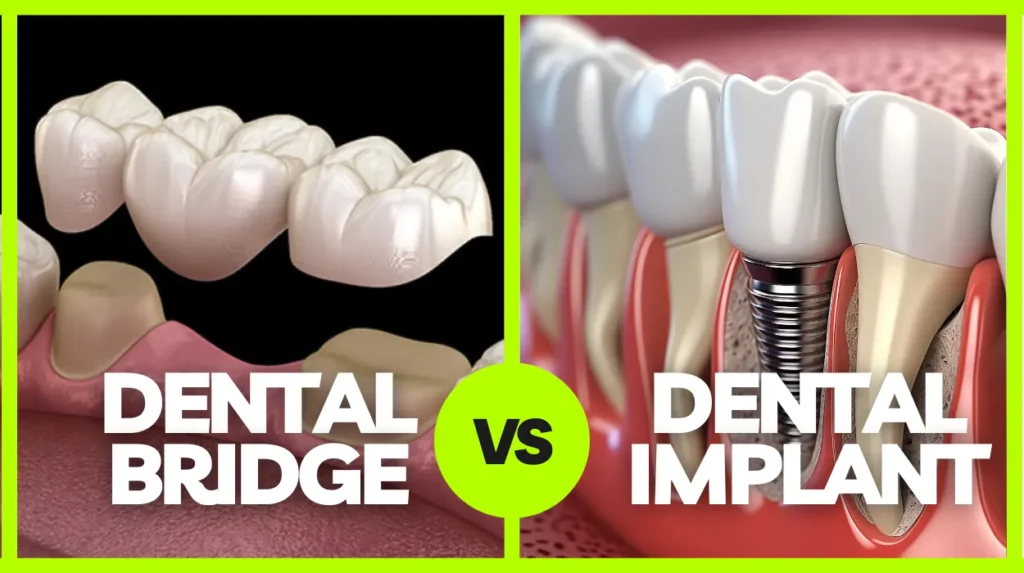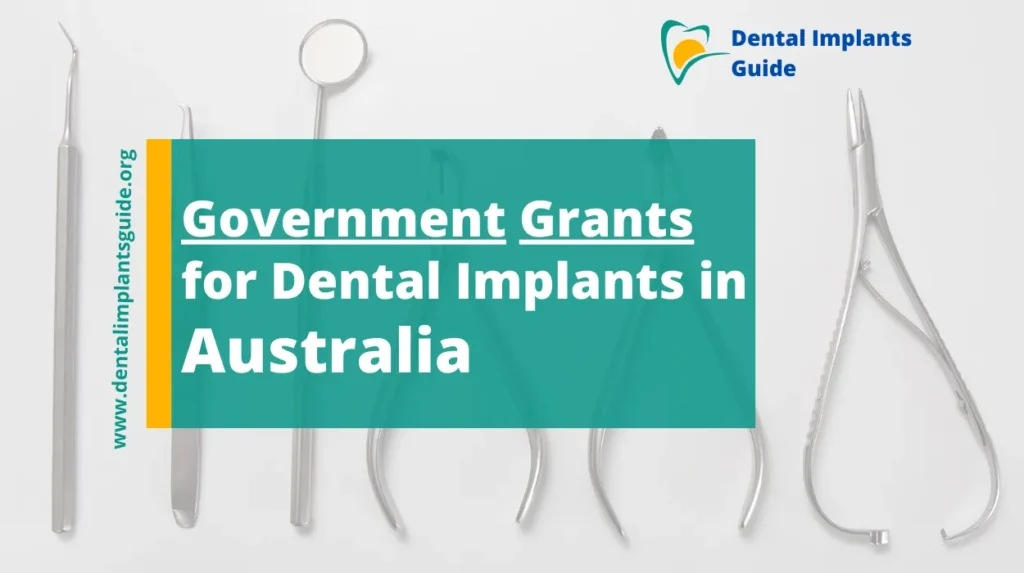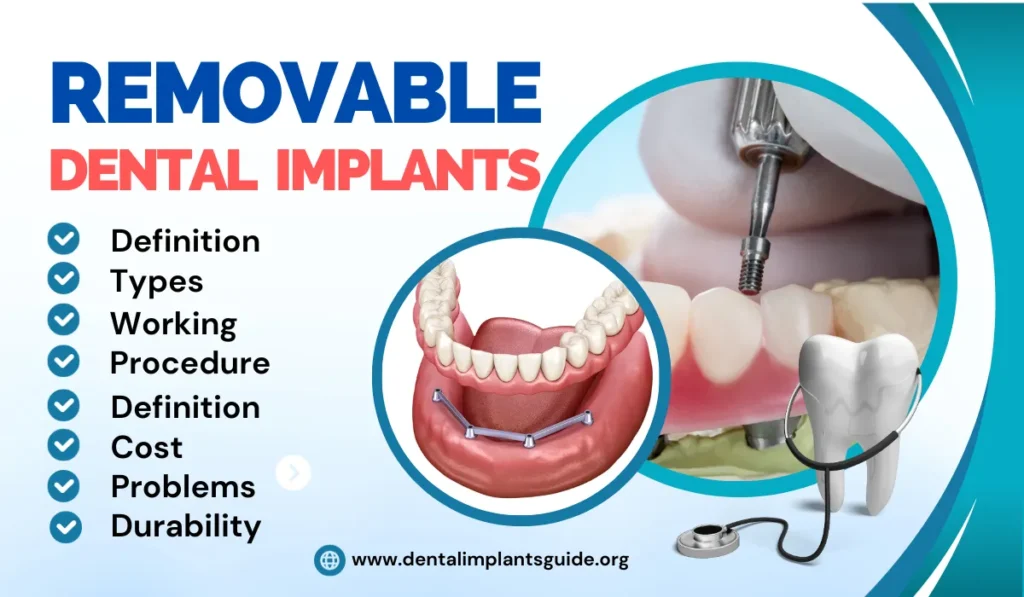Hello readers! You’re probably looking for a way to replace missing teeth if you’re considering dental implants.
While dental implants can be an excellent choice for many people, it is critical to consider all options before making a decision.
In this article, I’ll discuss five reasons not To get dental implants.
What Are Dental Implants?
Dental implants are artificial tooth roots made of titanium, which are surgically implanted into your jawbone. Once in place, they provide a sturdy foundation for replacement teeth, making them look and feel like natural teeth.
9 Reasons Not To Get Dental Implants
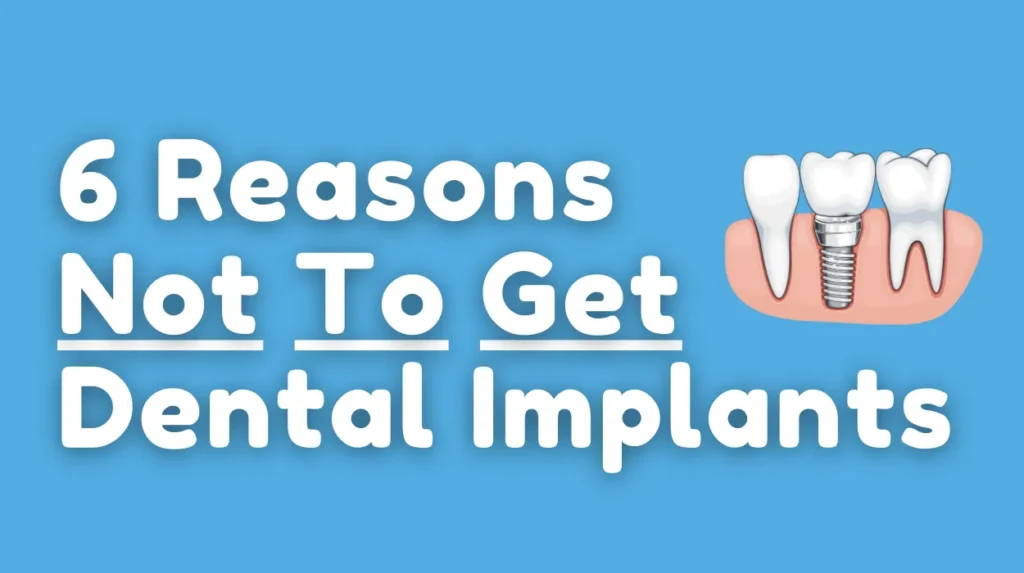
1. The Cost Factor

One of the primary concerns for many people considering dental implants is the cost. Dental implants can be expensive, and they may not be covered by your dental insurance.
One of the primary concerns for many people considering dental implants is the cost. Dental implants can be expensive, and they may not be covered by your dental insurance. Here’s a rough breakdown of the costs involved:
| Expense | Estimated Cost |
|---|---|
| Implant Surgery | $1,000 – $3,000 per implant |
| Abutment and Crown | $500 – $3,000 per tooth |
| X-Rays and Consultations | Varies |
| Total | $3,000 – $6,000 per tooth |
It’s crucial to consult with your dentist and discuss your financial options before committing to this procedure.
2. Surgical Procedure

Getting dental implants isn’t a quick fix. The entire process can take several months to a year, depending on your individual case. Here’s a general timeline:
Getting dental implants involves a surgical procedure, which may not be suitable for everyone. Here’s what you need to know:
Anesthesia ➡ You will likely be given local anesthesia to numb the area during the procedure. However, some people may have concerns about needles or the discomfort associated with numbing.
Surgery ➡ Dental implant placement involves drilling into the jawbone to secure the implant. This surgical aspect may not be suitable for individuals with medical conditions or anxiety related to surgery.
Recovery ➡ After the surgery, there will be a recovery period during which you may experience pain, swelling, and some restrictions on your diet. This downtime can be inconvenient for some people.
3. Dental Health

Before opting for dental implants, it’s essential to evaluate your overall dental health. Here’s why:
Gum Disease: If you have untreated gum disease, it can affect the success of dental implants. It’s crucial to have a healthy foundation (gums and jawbone) for implants to work effectively.
Bone Density: Dental implants rely on a healthy jawbone to support them. If you’ve experienced significant bone loss in your jaw, you may require additional procedures like bone grafts, which can add to the complexity and cost.
4. Time Commitment

| Step in the Process | Time Required |
|---|---|
| Initial Consultation | 1-2 hours |
| Implant Placement Surgery | 1-2 hours |
| Healing and Osseointegration | 3-6 months |
| Abutment Placement | 1-2 weeks after healing |
| Crown Placement | 1-2 weeks after abutment |
Dental implant treatment is not a quick fix. It involves several steps, and the entire process can take several months to complete. Here’s a rough timeline (see Table 2) to give you an idea:
- Initial Consultation: You’ll need to visit the dentist for an evaluation and treatment planning.
- Implant Placement Surgery: The actual implant placement is a surgical procedure that takes time to heal.
- Healing and Osseointegration: This is when the implant fuses with the jawbone, and it typically takes a few months.
- Abutment Placement and Crown: These are the final steps, and they also require some time.
If you’re looking for a faster solution, dental implants might not be the best choice.
5. Potential Complications

While dental implants are generally safe and successful, there can be complications, just like with any surgical procedure. Some possible issues include:
- Infection at the implant site.
- Damage to surrounding structures like nerves or blood vessels.
- Implant failure due to poor bone integration.
- Allergic reactions to materials used.
6. Maintenance and Care

Once you have dental implants, you’ll need to take good care of them to ensure their longevity. Here are some maintenance tips:
- Brush and floss regularly to keep the implant and surrounding gums clean.
- Visit your dentist for regular check-ups and cleanings.
- Avoid excessive chewing on hard objects, like ice or pencils, to prevent damage.
- Quit smoking, as it can hinder the healing process and increase the risk of implant failure.
Other reasons not to get dental implants
In addition to the reasons listed above, there are some other reasons why you might not want to get dental implants. These include:
You are not a good candidate for surgery ➔ If you have certain health conditions, such as uncontrolled diabetes or osteoporosis, you may not be a good candidate for dental implant surgery.
You have not completed your jaw growth ➔ If you are still young, your jawbone may not be fully developed. In this case, it is best to wait until you are older before getting dental implants.
You smoke ➔ Smoking can increase your risk of implant failure. If you smoke, you will need to quit before getting dental implants.
How do you know if you have enough bone for dental implants?
When it comes to dental implants, having enough bone in your jaw is essential because the implant needs a strong foundation to stay put and work properly. So, how do you know if you have enough bone? Here are some easy ways to find out:
1. X-Rays and CT Scans ➡ Your dentist will likely take X-rays or a CT scan of your jaw. These images will show how much bone you have and its quality. It’s like getting a picture of what’s going on inside your jaw.
2. Clinical Examination ➡ Your dentist will also do a hands-on examination. They might gently feel your jaw and check the thickness of the bone. It’s a bit like when a doctor checks your heartbeat with a stethoscope, but in this case, they’re checking your jawbone.
3. Bone Grafting ➡ If it turns out you don’t have enough bone, don’t worry! There’s a solution called bone grafting. It’s like adding extra support beams to a building. Your dentist can take bone from another part of your body or use a special material to build up the bone where you need it.
When are dental implants not a good idea?
Dental implants might not be a good idea in a few situations.
- If your gums are not healthy, it can be risky to get implants. Healthy gums are essential for implants to work well.
- Young people with growing jaws may need to wait until they stop growing to get implants.
- If you have certain health issues, like uncontrolled diabetes or heart problems, implants may not be safe.
- Smoking can slow down healing and make implants less likely to work.
- If you don’t have enough jawbone, you may need a bone graft before implants.
What they don’t tell you about dental implants?
What they don’t tell you about dental implants is that:
➡ Dental implants are not a long-term solution. There is a small chance that implants will fail over time, especially if they are not properly cared for.
➡ Infection is a risk with dental implants. This is unusual, but it can happen, particularly if you have poor oral health or smoke.
➡ Dental implants can damage your natural teeth. Your other teeth may be damaged if the implant is not properly placed.
➡ Dental implants can be painful and unpleasant. This is usually only temporary, but it can last for weeks after surgery.
➡ Dental implants can affect your speech and taste. This is usually only temporary, but it’s always good to be prepared
What is the worst part of dental implant?
The worst part of dental implants for most people is the cost. They can be pretty expensive, and not everyone’s wallet can handle it. Plus, it takes a long time, often many months, before you can enjoy your new teeth.
What are the advantages and disadvantages of dental implants?
The advantages and disadvantages of dental implants are:
| Advantages of Dental Implants | Disadvantages of Dental Implants |
|---|---|
| 1⁃ Look and Feel Natural | 1⁃ High Cost |
| 2⁃ Durable and Long-lasting | 2⁃ Time-Consuming Process |
| 3⁃ Improved Chewing and Speech | 3⁃ Potential Complications |
| 4⁃ Preserves Jawbone Health | 4⁃ Maintenance and Care Required |
| 5⁃ No Risk of Slipping or Falling | 5⁃ Not Suitable for Everyone |
| 6⁃ Easy to Maintain and Clean | 6⁃ Surgical Procedure Involved |
FAQs
Is the dental implant surgery painful?
During the surgery, you won’t feel pain because of anesthesia. Afterward, there might be some discomfort, but it’s usually manageable.
Are there any risks or complications with dental implants?
Yes, there can be risks like infection, implant failure, or nerve damage, but these are not very common and can be minimized with proper care.
How long does it take for a dental implant to heal completely?
It can take 5 to 7 months for the implant to fully fuse with the bone. But you’ll be able to do normal activities during this time.
Does the dental implant procedure affect eating or speaking?
Initially, you might need to eat soft foods and speak carefully, but once healed, it shouldn’t affect eating or speaking.
Will I have to take time off work after getting a dental implant?
You might need a day or two off for the surgery, but many people return to work shortly after.
Can I still enjoy my favorite foods with dental implants?
Yes, after healing, you can eat most foods just like you would with natural teeth.
Do dental implants require special care or maintenance?
Regular brushing, flossing, and dental check-ups are essential, but no special care is needed.
Will I have a gap in my smile during the dental implant process?
Temporary teeth can be used so that you won’t have a gap while waiting for the implant to heal.
Final Words
Dental implants can be an excellent way to replace missing teeth, but they are not for everyone. Consider cost, time commitment, potential complications, and ongoing maintenance requirements before making a decision.
Remember that alternative options, such as dentures or bridges, may be more practical for some people. It is critical to consult with your dentist, discuss your specific needs, and carefully weigh the pros and cons.
I hope this article has given you useful information about reasons not to get dental implants. Make an informed decision, and don’t be afraid to ask us any questions through comments down below. Your smile is priceless!
